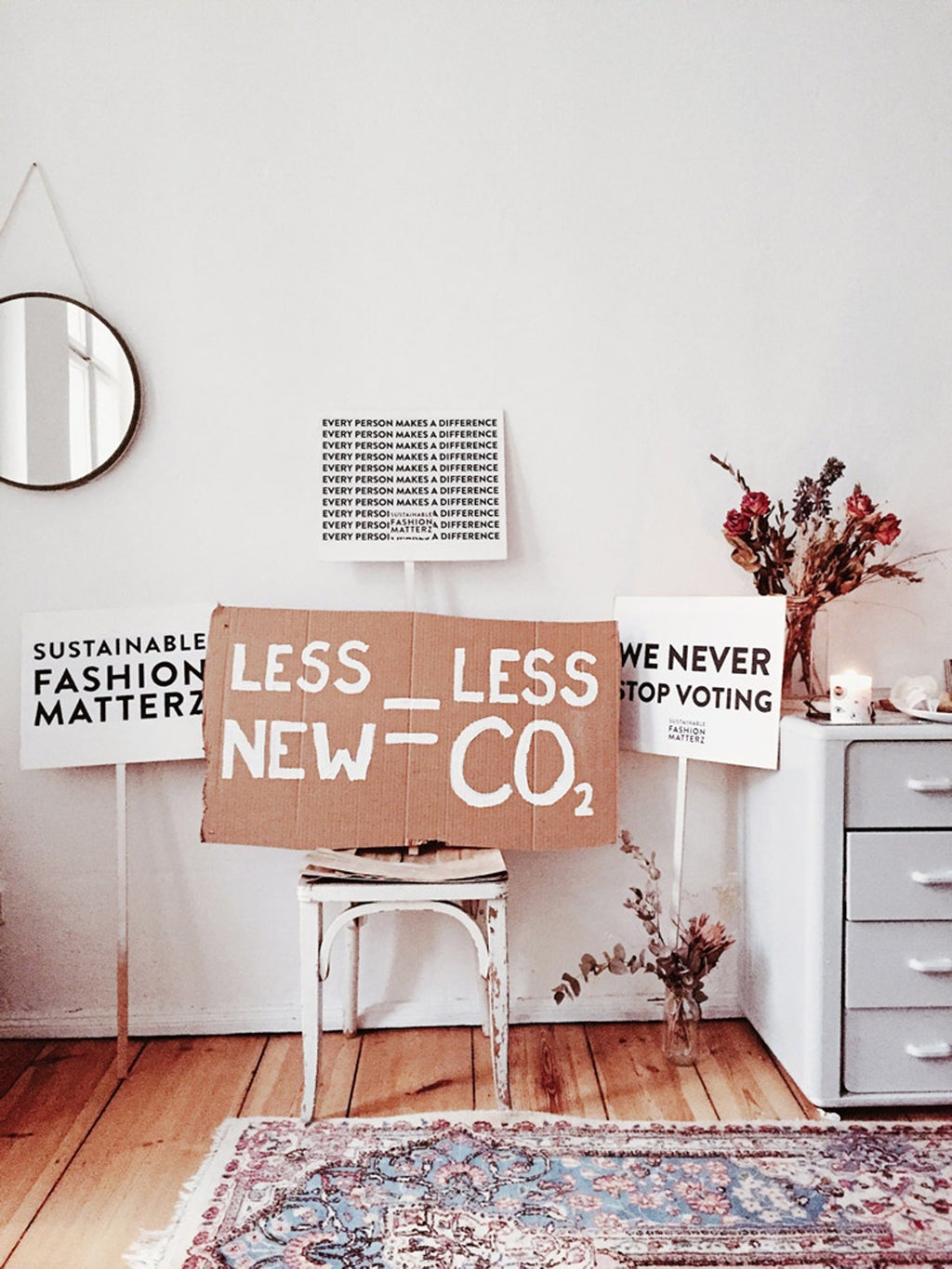The Her Campus National Editors write about products we love and think you’ll love too. Her Campus has affiliate partnerships, so we get a share of the revenue from your purchase. All products are in stock and all prices are accurate as of publication.
Influencers are taking the Internet by storm and leaving mass overconsumption in their wake. Everywhere we look, something is trending: a fancy pair of shoes, a holy-grail beauty product, even a Stanley water bottle. We are constantly being told we need more, we don’t have enough, and if we buy this specific thing, it will change our lives.
Very rarely is this the case. Once the initial novelty wears off, we don’t feel that different. Sometimes the product doesn’t meet our expectations, so it ends up in the garbage or in a random box pushed to the back of our closet. It just makes us feel guilty for spending money and creating waste for the environment.
I was a victim of this myself; cue my de-influencing phase. This social media trend aims to encourage people to think more critically about what they’re buying. Many creators have made videos explaining why they do not think certain products are worth the money and which alternatives they suggest, if any. It has inspired me to evaluate my own consumption habits. Along the way, I’ve learned a thing or two about being a more responsible shopper and saving money moving forward.
I personally think it defeats the purpose of de-influencing to buy something cheaper, so most of my tips revolve around limiting your spending as much as you can.
1. Find swaps for things you usually buy
The swap that has made the biggest difference for me is borrowing books from the library instead of buying them from Indigo. While racking up Plum points is great, I’ve found that I often buy books only to not pick them up ever again after reading. I still occasionally go to Indigo for that nostalgic experience, but instead of buying new books, I make a note to put it on hold at the library. This has saved me so much money and stress; now when I don’t like a book, it’s no big deal! I can just return it and forget it ever existed. Supporting my local library is also important to me because they provide free access to endless resources and information, which is essential to a functioning society.
2. Put what you have at home to use.
During my de-influencing phase, I’ve created a new rule of thumb: if I already have something that does the same thing, I don’t buy it. Since my sister left some of her things at home when she moved out for university, this is a bit easier. It’s a free trial of sorts; if I use her jade roller for a month and I don’t see any benefits, I can just “return” it to her room without feeling guilty because I didn’t actually spend money.
This also works by using what you have of your current products before buying a new one that is trending. Let’s say you want to buy a Glossier lip gloss, but you already have a half-empty tube from another brand. Put Glossier on your wishlist, and hold off on buying it until you run out of your current one. Usually, the dopamine hit from buying will wear off within a few days.
3. How to properly evaluate purchases.
I’ve also learned how to think critically about my purchases. Whenever I contemplate buying something new, I ask myself, “What will I use this for?” and “Where will I keep it?”. If it’s a clothing item, I ask myself “What am I going to wear this with? Is it good quality? Is it something I’m going to wear often?” These questions help me get clear on what I have and what is really missing from my life, so I don’t waste money on random things I don’t need.
4. If it does not spark joy, there is no pressure.
Taking a leaf out of Marie Kondo’s book, the simplest thing to do when de-influencing is thinking about what makes you happy. If you feel like you’re happy enough without something an influencer is promoting, you don’t need to buy it. If you don’t think it will add anything to your life, forget about it. There’s no shame in splurging on a treat now and then. However, I think at its core, de-influencing is about being more intentional with what we consume to make more space for what we truly care about in life.
Hopefully this inspires you to start your own de-influencing journey!



